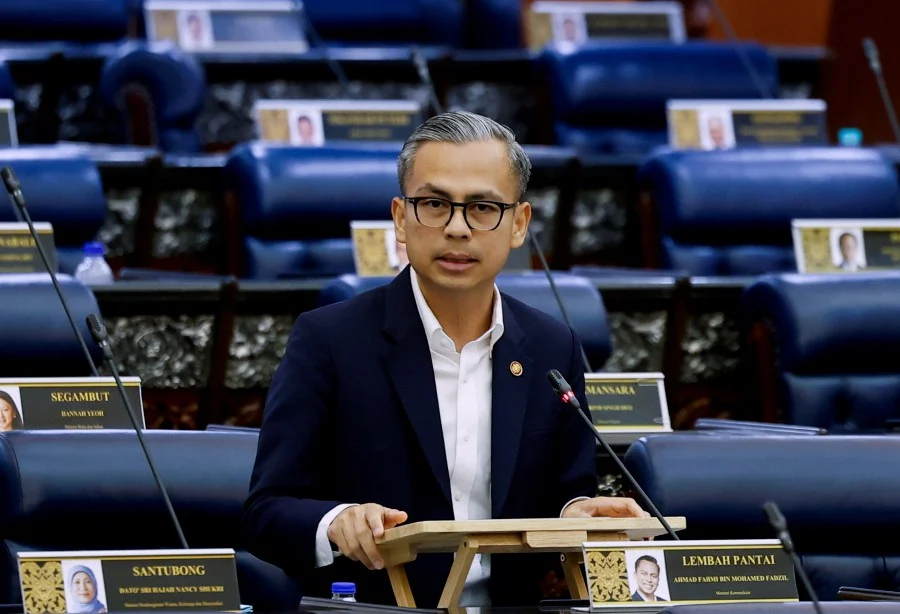By The Malketeer
A Narrow Escape: Government’s Thin Margin in Bloc Vote
In a dramatic turn of events at the Dewan Rakyat, the controversial Communications and Multimedia Act (Amendment) Bill narrowly cleared its Committee Stage reading with a slim majority of 19 votes.
Government lawmakers scrambled to secure approval after the Opposition bloc, led by Pasir Mas MP Ahmad Fadhli Shaari, strategically called for a vote.
The unexpected bloc voting came just moments after Communications Minister Fahmi Fadzil concluded debates on the Bill.
Only 120 out of 222 Members of Parliament were present, highlighting the razor-thin margin that decided the Bill’s fate.
Dewan Rakyat Speaker Datuk Seri Johari Abdul even delayed proceedings to allow more government MPs to enter the chamber, underscoring the high stakes involved.
Cracks Emerge: MPs Question Vague Definitions and Expansive Powers
While the Bill passed its third reading without amendments, dissent echoed across both sides of the political divide.
MPs, rights advocates, and media groups expressed grave concerns over the implications of the amendments.
Key points of contention included the expanded powers of the Malaysian Communications and Multimedia Commission (MCMC).
Critics argue these powers—allowing directives to be issued, premises to be searched, and data to be seized without warrants—pose a significant risk of censorship and abuse.
The lack of precise definitions for terms such as “indecent,” “offensive,” and “hate speech” also drew ire.
Media and rights groups fear such ambiguous language could stifle freedom of expression and open the door to arbitrary enforcement.
“What constitutes ‘offensive’ or ‘indecent’ will be up to the subjective judgment of those in power. This is a slippery slope,” warned a critic from a prominent rights organisation.
Calls for Accountability: The Select Committee Push
Even among government ranks, skepticism brewed.
At least three lawmakers urged for the amendments to undergo scrutiny by the Select Committee, emphasising the need for more robust safeguards to prevent potential misuse.
Their concerns echo the sentiments of an increasingly wary public, worried about how these new laws may encroach upon their digital freedoms and privacy.
With Malaysia striving to position itself as a digital leader in Southeast Asia, critics argue that such legislation could be counterproductive, fostering an environment of fear rather than innovation.
What’s at Stake: Balancing Regulation and Rights
This legislative push comes at a critical time when nations worldwide are grappling with balancing digital governance and personal freedoms.
For brands and media organisations, this development is particularly significant, as it may influence content strategies, digital campaigns, and public discourse.
The broader marketing and media industry must prepare to navigate these changes, potentially facing stricter regulatory oversight.
For businesses relying on vibrant, open digital platforms to connect with audiences, these amendments could signal a chilling effect on creativity and engagement.
A Precarious Precedent
The passing of this Bill has sparked a national debate about the future of Malaysia’s digital ecosystem.
While the government emphasises the need for stronger online safeguards, the vague and expansive nature of the amendments raises legitimate concerns about abuse and overreach.
As this legislation unfolds, stakeholders in the media and marketing sectors must remain vigilant.
The question remains: how will Malaysia strike the delicate balance between regulation and the rights of its citizens to a free and open internet?
For now, the country stands at a crossroads—where the road taken could shape its digital destiny.
MARKETING Magazine is not responsible for the content of external sites.











